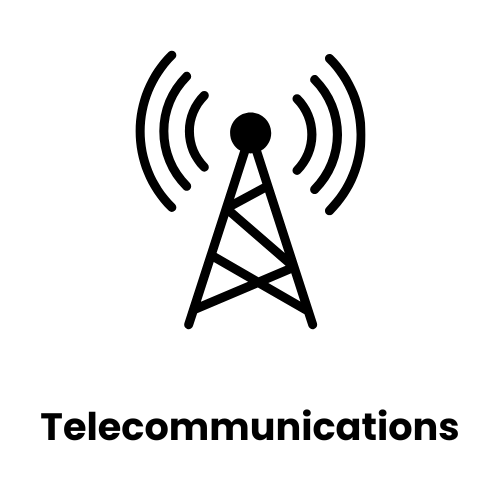Patent Validity & Invalidity Search
A comprehensive examination to ascertain the validity and enforceability of a granted patent is known as a patent invalidity search.
A patent invalidation search, also known as a patent validity search or patent invalidity search, is a thorough investigation done to determine the validity of an issued patent. The goal of this search is to find prior-art or existing technology that might invalidate one or more claims of the patent in dispute. This search is often carried out by patent attorneys, intellectual property (IP) specialists, or specialized search businesses.
Purposes for conducting the Patent Invalidity Search
The purpose of a patent invalidation search is to determine a patent's validity and enforceability. Following are various reasons for conducting the Patent Invalidity Search:
- Defensing a patent: If a patentee is accused of infringing a patent, conducting the invalidation search can uncover prior art that may invalidate one or more claims of the patent. This can be crucial for building a defence against infringement allegations. By conducting the search, a strategy against the uncovered prior arts can be made to defence the patent.
- Challenging Competitors' Patents: One can conduct invalidation searches to identify weaknesses in their competitors’ patents. This information can be used to challenge the validity of those patents through proceedings such as pre-grant patent opposition, post-grant patent opposition, inter partes review, or litigation.
- Making Strategic Decision: One can perform invalidation searches as part of his patent strategic planning, especially when entering a new market or investing heavily in a certain technological area. Understanding the current patent environment and its validity may help making informed decisions regarding product development, licensing, and acquisitions. If a patent is found weak in the patent invalidation search, informed decision can be taken regarding the expenditure regarding product development.
- Managing the Patent Portfolio: Patent owners may conduct invalidation searches as part of their ongoing portfolio management efforts. Identifying weaknesses or vulnerabilities in their own patents allows them to take proactive measures to strengthen their portfolio, such as pursuing amendments or additional patent filings.
Overall, the goal of conducting a patent invalidation search is to give stakeholders with useful information on the validity and strength of patents, allowing them to make educated decisions and reduce legal risks in the intellectual property landscape.
Challenges in conducting the search
- Vast Amount of Data: Patent databases and other sources of prior-art include massive amounts of data, making it difficult to sift through and discover relevant references quickly. This leads to ignorance of potential prior arts.
- Complexity of Patent Language: Patents frequently utilize extremely technical and specialized terminology that non-experts in the subject may find difficult to grasp. Misinterpretation of patent claims or specifications might lead to incorrect conclusions regarding the validity of the patent.
- Incomplete or Inaccurate Information: Patent databases may have several mistakes, inconsistencies, or insufficient information, limiting the usefulness of the search. Furthermore, significant prior art may exist in non-patent literature or obscure sources that are not easily accessible.
- Evolution of Technology: Technology advances quickly, and new inventions may arise after a patent's filing date. Identifying relevant previous art that was not available or widely recognized during the time of patent review can be particularly difficult.
Addressing these issues necessitates meticulous planning, patent search and analysis skills, and access to extensive databases and resources. Collaboration with our skilled team, that specialize in patent invalidation searches can assist reduce these issues and improve the efficacy of the search process.
Steps to conducting the Patent Invalidation Search
- Identifying the Patent: The first step is to clearly define the patent in question, including its claims, descriptions, and any amendments. Our experienced team extract all the data related to the patent in question from patent databases.
- Identifying Relevant Keywords and Classifications: Our experts identify keywords, phrases, and technical terminology associated with the subject invention. We use categorization techniques such as the International Patent Classification (IPC), Cooperative Patent Classification (CPC) to properly categorize the invention. Additionally, our experts use advanced search features to narrow down results based on keywords and classifications such as: publication dates, inventors, assignees, etc.
- Search for Prior Art: Researchers then conduct a thorough search across various databases, including patent databases, scientific literature, technical papers, conference proceedings, and any other relevant sources. The purpose of the search is to find evidence of prior inventions or technologies that published earlier then the filing date of the patent in question.
- Analysis and Evaluation: Once potential prior art is identified, it is analysed to determine its relevance and potential impact on the validity of the patent's claims. This involves assessing whether the prior art anticipates or renders obvious the patented invention, thereby potentially invalidating one or more claims. Our experts conduct a claims mapping with the identified prior arts. Based on the mapping it is evaluated that if the identified prior art is invalidating the claims of the patent in question or not.
- Report Generation: After the analysis, a detailed report is compiled by our experts. The report has summary of the findings of the search and analysis. This report typically includes references to the prior art uncovered, an assessment of its relevance to the patent claims, the search strategy, the key words & key strings uses and conclusions regarding the potential validity or invalidity of the patent.
Our experts are well versed in conducting patent invalidation searches in all domains of science. Our reports are very accurate and helpful for our clients involved in patent disputes, such as defendants facing allegations of infringement or companies considering challenging the validity of a competitor's patent. Our clients have given positive feedbacks on the same. If you have any query related to the Patent Invalidity searches, we will be happy to response it.
.jpg)

















.png)







